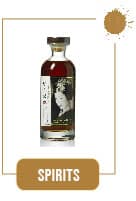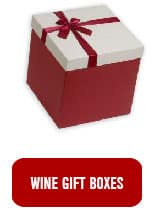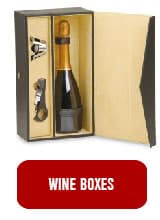No products
Catalog
- 1907
- 1918
- 1924
- 1925
- 1929
- 1931
- 1933
- 1934
- 1937
- 1938
- 1939
- 1940
- 1941
- 1942
- 1943
- 1944
- 1945
- 1946
- 1947
- 1948
- 1949
- 1950
- 1951
- 1952
- 1953
- 1954
- 1955
- 1956
- 1957
- 1958
- 1959
- 1960
- 1961
- 1962
- 1963
- 1964
- 1965
- 1966
- 1967
- 1968
- 1969
- 1970
- 1971
- 1972
- 1973
- 1974
- 1975
- 1976
- 1977
- 1978
- 1979
- 1980
- 1981
- 1982
- 1983
- 1984
- 1985
- 1986
- 1987
- 1988
- 1989
- 1990
- 1991
- 1992
- 1993
- 1994
- 1995
- 1996
- 1997
- 1998
- 1999
- 2000
- 2001
- 2002
- 2003
- 2004
- 2005
- 2006
- 2007
- 2008
- 2009
- 2010
- 2011
- 2012
- 2013
- 2014
- 2015
- 2016
- 2017
- 2018
- 2019
- 2020
WINE RATING
How to Choose Your Wine Based on Wine Reviews
Choosing a wine can be challenging, especially with the diversity of terroirs, the reputation of various appellations, and the renown of different estates. With so many factors to consider, it can be difficult to make an informed decision.
One of the most reliable, though somewhat subjective, crite...
How to Choose Your Wine Based on Wine Reviews
Choosing a wine can be challenging, especially with the diversity of terroirs, the reputation of various appellations, and the renown of different estates. With so many factors to consider, it can be difficult to make an informed decision.
One of the most reliable, though somewhat subjective, criteria is the rating given by wine experts. These reviews can provide a solid indication of the wine's quality and help guide your purchase.
Why Rely on Wine Ratings?
Expert ratings, such as those from Robert Parker, are often used as a reference to assess a wine's quality. While wine appreciation is still subjective, these ratings generally reflect the critic's expertise and the wine's characteristics. They offer a clearer idea of what to expect from the wine you're considering.
Robert Parker's Rating System
Robert Parker, one of the world’s most influential wine critics, rates wines on a 100-point scale. Here's how he evaluates a wine:
- 50 points are automatically awarded, regardless of the wine's quality.
- Then, the wine is assessed based on the following criteria:
- Appearance (Color and clarity): 5 points.
- Nose (Aromas and complexity): 15 points.
- Palate (Flavors and structure): 20 points.
- Overall quality and aging potential: 10 points.
Understanding Robert Parker’s Wine Ratings
Once the wine has been rated, it’s classified into different categories based on its total score. Here are the five rating levels, which help you understand the wine's quality:
- Exceptional (96-100 points): Wines of extraordinary quality, often rare, with great complexity and aging potential.
- Excellent (90-95 points): Very well-balanced, high-quality wines, often with the ability to age gracefully.
- Above Average to Very Good (80-89 points): Pleasant wines that are well-balanced and of good quality but not as exceptional as excellent wines.
- Average (70-79 points): Acceptable wines, but lacking in complexity or distinction.
- Below Average to Unacceptable (50-69 points): Disappointing wines, often unbalanced or with noticeable defects.
How to Use These Ratings to Choose a Wine?
-
Define your budget: If you're willing to invest in a top-quality wine, look for wines rated between 90 and 100 points. These wines are often excellent and can be enjoyed either young or after aging.
-
Consider your personal preferences: If you prefer a fruitier or spicier wine, wine reviews can help you identify which varietals or styles suit your tastes, in addition to the rating.
-
Select based on the occasion: For a special event, opt for a wine rated 90 points or higher. For a more casual dinner, a wine rated between 80 and 89 points will likely be of good quality but more affordable.
-
Follow expert guidance: While ratings are subjective, reviews from critics like Robert Parker are based on years of experience and professional tastings. They are an excellent way to find wines that offer good value for money.
Conclusion
Wine reviews and expert ratings, such as those from Robert Parker, are valuable tools to help you make informed choices. They provide an objective insight into a wine’s inherent qualities and can guide you to high-quality bottles that suit your budget and preferences.
Next time you’re searching for the perfect wine, don’t hesitate to consult the ratings to find the one that best meets your expectations!
Subcategories
-
extraordinary wines
Exceptional Wines (96-100 Points)
Exceptional wines, those rated between 96 and 100 points by critics like Robert Parker, represent the pinnacle of winemaking. These wines are considered extraordinary and often exhibit characteristics that set them apart from the rest. Here’s a breakdown of what makes a wine exceptional:
1. Unparalleled Quality
- These wines are often the best examples of their region, varietal, or style. They reflect the perfect balance between all elements: aroma, taste, texture, and finish. An exceptional wine is not only well-made but also offers something unique and memorable.
- They often come from the top estates and most prestigious vineyards, where the winemakers’ expertise and attention to detail are reflected in every step of production.
2. Complexity
- Exceptional wines are layered with complexity. They tend to have multiple levels of aromas and flavors that evolve over time, offering a dynamic and engaging tasting experience.
- You might notice new aromas or tastes every time you take a sip, whether it’s fruit, spice, floral, earthy, or mineral notes that change as the wine airs and as it ages.
3. Perfect Balance
- These wines achieve perfect harmony between acidity, tannins, fruit, alcohol, and body. There’s no single element that overpowers the others. The balance makes them easy to drink, yet intriguing and sophisticated.
- The texture is often silky or smooth, with a well-structured body that feels elegant in the mouth.
4. Aging Potential
- Exceptional wines have outstanding aging potential. These wines can improve over the years, becoming even more complex and refined. The ability to age gracefully and continue evolving makes them not only a pleasure to drink now but also a great investment for the future.
- Some wines in this category are able to age for decades, making them highly sought after by collectors.
5. Memorable Finish
- The finish of an exceptional wine is long and lingering, often leaving a lasting impression. The flavors don’t dissipate quickly but instead linger on the palate, providing a satisfying conclusion to the tasting experience.
- A great wine’s finish is like a signature—it stays with you, making it memorable and distinctive.
6. Rarity and Prestige
- Many exceptional wines come from limited-production vineyards or prestigious estates that produce only a small quantity of wines each year. Their rarity often adds to their allure and exclusivity.
- These wines are sought after by collectors and connoisseurs and are often seen as symbols of status and quality in the wine world.
Examples of Exceptional Wines:
- Château Margaux (Bordeaux, France): Known for its luxurious texture and aromatic complexity, this wine is a benchmark of exceptional Bordeaux.
- Domaine de la Romanée-Conti (Burgundy, France): A legendary producer of Pinot Noir, often rated in the 97-100 range for its elegance, complexity, and purity.
- Penfolds Grange (Australia): A world-renowned Shiraz that consistently earns top marks for its rich flavors, balance, and aging potential.
Conclusion
Exceptional wines are rare gems that offer a truly extraordinary experience. They stand out not just for their impeccable quality, but for their complexity, balance, and ability to age. Drinking an exceptional wine is more than just tasting a beverage—it’s an experience, one that will be remembered and cherished for years to come.
-
excellents wines
-
very good wines
Very Good Wines (80-89 Points)
Very good wines, rated between 80 and 89 points by critics like Robert Parker, offer excellent quality with a good expression of their terroirs and grape varieties. While they may not be as complex or balanced as excellent wines, they still provide an enjoyable and satisfying tasting experience. Here’s what defines a very good wine:
1. Good Quality
- Very good wines are well-made and show a solid level of quality. Although they may not reach the level of exceptional wines, they are true to their appellation and grape variety, offering a nice representation of their terroir.
- These wines can come from well-known estates, as well as smaller or less famous producers who do a great job with their grapes.
2. Harmony and Balance
- Very good wines are generally well-balanced, with harmony between acidity, tannins, fruit, and alcohol. While they may lack the complexity of excellent wines, their overall balance makes them enjoyable to drink, offering a satisfying tasting experience.
- These wines may not be as refined, but their structure is solid enough to make them pleasurable.
3. Pleasant Aromas and Flavors
- Very good wines present pleasant aromas and flavors, although they may not have the depth and nuance of excellent wines. They are often fruity, fresh, and enjoyable on the palate, with notes that can range from spicy and floral to earthy, depending on their style.
- While not as complex, these wines offer a straightforward and enjoyable tasting experience.
4. Accessibility and Good Value for Money
- Very good wines often represent excellent value for money. They are usually more accessible than excellent wines and can be enjoyed without breaking the bank. These wines are perfect for everyday drinking or more casual occasions.
- Many wines in this category offer great quality at an affordable price, making them popular with wine enthusiasts looking for a flavorful option without compromise.
5. Less Aging Potential
- Very good wines are often best enjoyed young, and they do not possess the same aging potential as excellent or exceptional wines. While they may age a little, their quality will not improve significantly over time.
- They are best consumed within a few years of production to enjoy their freshness and fruitiness.
Examples of Very Good Wines:
- Château d'Issan (Bordeaux, France): A well-balanced wine with lovely dark fruit aromas and a pleasant structure.
- Côte-Rôtie "La Viallière" (Rhône, France): A silky and fruity Syrah with nice freshness and hints of soft spices.
- Château Puech-Haut (Languedoc, France): A wine with a great concentration of fruit and good balance, perfect for everyday meals.
Conclusion
Very good wines offer solid quality with pleasant aromas and flavors, along with great value for money. While they may not have the complexity or aging potential of excellent wines, they are a great choice for those looking for a quality wine for regular consumption or casual occasions. These wines are straightforward, enjoyable, and perfect for being appreciated without pretension.
-

-

Corton GC 2012 - Château de Meursault
2012 Domaine du Chateau de Meursault Corton Grand Cru, Cote de Beaune, France
85,00 CHF 100,00 CHF -15%Reduced price! -

-

-

Château La Gaffelière 1996
1996 Chateau La Gaffeliere, Saint-Emilion Grand Cru, France
62,95 CHF 74,05 CHF -15%Reduced price! -

Château GRAND CORBIN DESPAGNE 2010
Château GRAND CORBIN DESPAGNE 2010
41,35 CHF 45,95 CHF -10%Reduced price! -

Riesling Hipping GG 2020 - Kuhling-Gillot
Weingut Kühling-Gillot Hipping Grosses Gewächs 2020
64,85 CHF -

Pommard "Clos les Epeneaux" 2020 - domaine...
2020 Comte Armand Clos des Epeneaux Monopole, Pommard Premier Cru, France
151,35 CHF -

-

Chateauneuf Du Pape 2019 - Le Vieux Donjon
2019 Le Vieux Donjon Chateauneuf-du-Pape Rhone, France
59,45 CHF -

Pommard "Clos les Epeneaux" 2018 - domaine...
2018 Comte Armand Clos des Epeneaux Monopole, Pommard Premier Cru, France
145,95 CHF -

100 % in stock
All of our products are avalaible on stock
Quick delivery
Your order will be shipped in 48 hours in a packaging provided for this purpose
Free delivery
Free shipment fees for orders over 1000 CHF (in Switzerland)
Free pickup in Geneva
In order to avoid shipping fees, your order can be picked up directly in our cellars or shop in Geneva
Your fidelity rewarded
2 % off



























